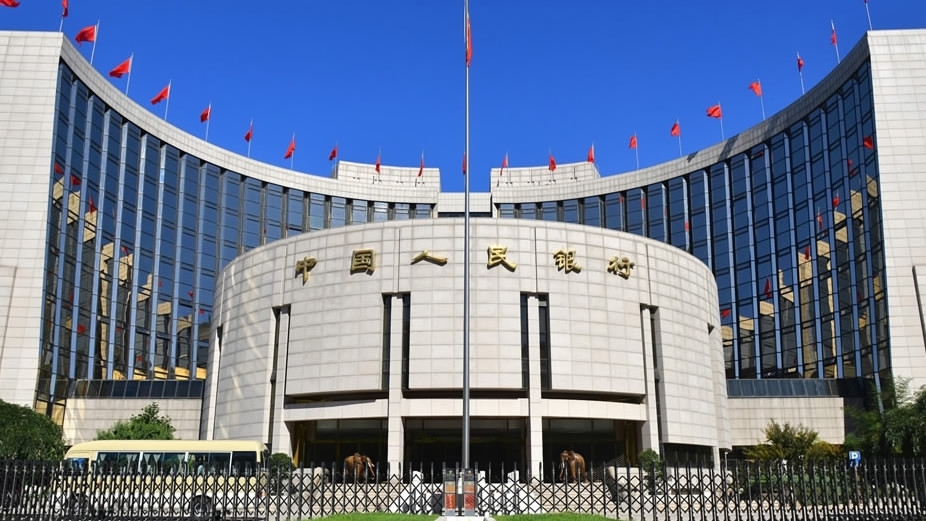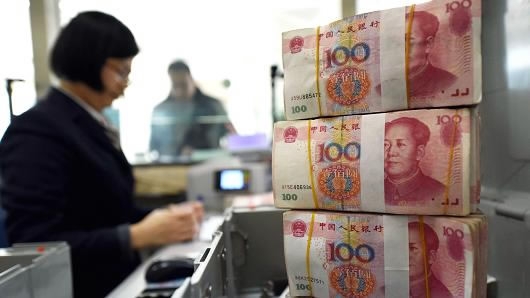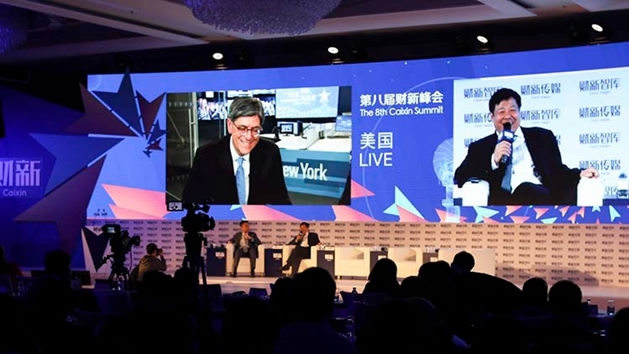
Business
12:18, 16-Nov-2017
China's central bank continues to inject liquidity into market
By Han Jie

China's central bank conducted net cash injections into the market for the fourth straight day on Thursday to ease liquidity strain.
The People's Bank of China (PBOC) conducted 330 billion yuan (about 50 billion US dollars) of reverse repos Thursday, pumping a net 310 billion yuan into the market as 20 billion yuan of reverse repos matured.
Reverse repo is a process by which the central bank purchases securities from commercial banks through bidding with an agreement to sell them back in the future.
China’s financial sector faces bubble risks, which are reflected in the country’s high broad money supply, Huang Qifan, vice chairman of the economic and finance committee under the National People’s Congress, said at a conference on Thursday.

CGTN Photo
CGTN Photo
In terms of keeping a stable money market and ensuring the Renminbi's global position, Beijing needs to reform its foreign exchange reserves system and that the People’s Bank of China should have independence to enact monetary policy, Huang said.
While, China’s foreign exchange rate has moved to a "much more market-oriented frame," said Jack Lew, the former US Treasury Secretary at the 8th Caixin Summit on Wednesday.
"It’s very important that the exchange rate not be an issue of tension between our countries," Lew said, adding that Beijing's decision to allow foreign investors to take a 51 percent stake in financial companies was "an important move," even though the government could do more to open up the sector.

Former US Treasury Secretary Jack Lew discuss with Chinese Finance Vice Minister Zhu Guangyao about the China-US economic cooperation via video links at the 8th Caixin Summit in Beijing on Wednesday. /CGTN Photo
Former US Treasury Secretary Jack Lew discuss with Chinese Finance Vice Minister Zhu Guangyao about the China-US economic cooperation via video links at the 8th Caixin Summit in Beijing on Wednesday. /CGTN Photo
The International Monetary Fund added the Renminbi (yuan) to its basket of reserve currencies last October, in addition to the US dollar, the euro, the yen and the pound.
The IMF's report upgrading the Chinese economy growth rate of world economy from 3.7 percent in 2017 to 3.8 percent in 2018. It's upgraded China’s economic growth to 6.8 percent for 2017 and 6.5 percent for 2018, up 0.2 percent and 0.3 percent percent from the April forecast.
Thursday's operation came after a net injection of 150 billion yuan Monday, 140 billion yuan Tuesday and 220 billion yuan Wednesday, as maturing reverse repos and tax payments put pressure on liquidity near the end of the year.
1km

SITEMAP
Copyright © 2018 CGTN. Beijing ICP prepared NO.16065310-3
Copyright © 2018 CGTN. Beijing ICP prepared NO.16065310-3